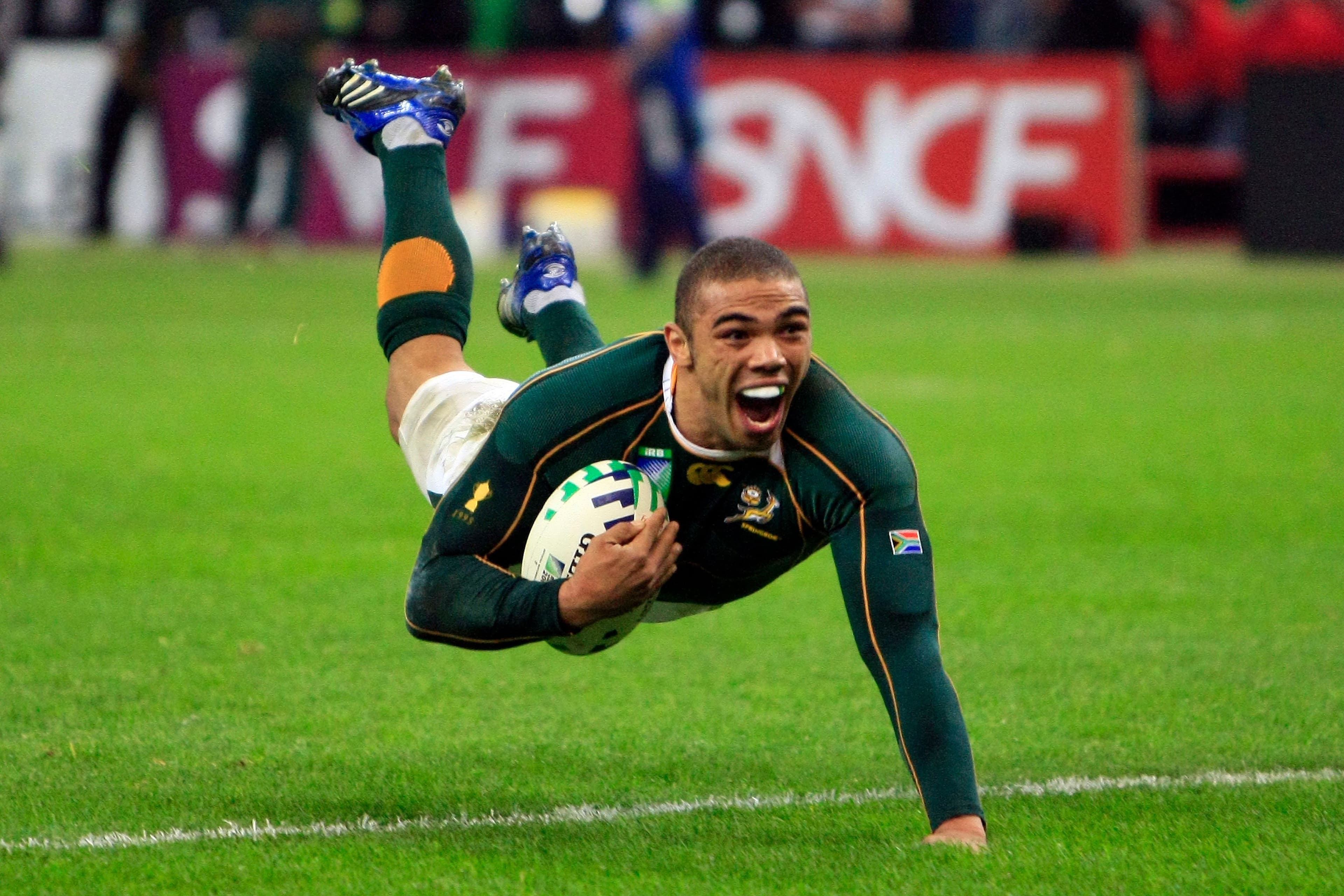Rugby
How Do You Get Bonus Points In Rugby Union?
Rugby Union offers several ways to earn points during league matches. Teams can earn points for wins, draws, and losses. To do so, teams must earn bonus points during the game. Bonus points can be earned during a win, draw, or defeat, and teams can earn more than one. This is how you get a bonus point in rugby union.

Image Credits: Eddy LEMAISTRE/Corbis via Getty Images
Rugby union offers bonus points scoring during league matches throughout the domestic and international tournaments globally. Bonus points are awarded for scoring four or more tries or losing by seven or fewer points. This scoring system is used in the Rugby World Cup (RWC), Six Nations Championship, the United Rugby Championship, the European Rugby Champions Cup, and the European Rugby Challenge Cup. Super Rugby and The Rugby Championship (TRC) used the same standardised system.
In 2016, SANZAAR (South Africa, New Zealand, Australia, and Argentina Rugby) changed the bonus points system so that an attacking bonus point is awarded if a team scores at least three tries more than their opponents. Both systems employ the losing by fewer than seven bonus points system.
Standard Rugby Bonus Point Scoring System for League Tournaments and Group/Pool Stage
- Four points are awarded for a win.
- Two points are awarded for a draw.
- No points for a loss (no bonus points).
- Try bonus points are awarded for scoring four or more tries.
- A losing bonus point is awarded for defeat by seven or fewer points.
- Should a team score four tries and lose by seven points or fewer, they are awarded both (two) bonus points.
One point is commonly awarded; however, if a team scores the required tries and loses within seven points, they will be awarded two bonus points towards their league standings. Two or three points can be awarded after a draw depending on the bonus points. SportsBoom reveals how this unique scoring system works, and why it was introduced to rugby union.
Standard League Scoring System
| Match Result | Match Points | Try Bonus Point (4 or more tries scored) | Losing Bonus Point (lost by 7 or fewer points) | Total Points |
| Win | 4 | 1 | - | 5 |
| Win | 4 | No | - | 4 |
| Draw | 2 | 1 | - | 3 |
| Draw | 2 | No | - | 2 |
| Loss | 0 | 1 | 1 | 2 |
| Loss | 0 | 1 | No | 1 |
| Loss | 0 | No | 1 | 1 |
| Loss | 0 | No | No | 0 |
Standard Bonus Points System in Rugby Union
Bonus points are extra competition points awarded in rugby union. Bonus points were implemented to encourage attacking play. Before bonus points, rugby teams would treat club and provincial rugby like a Test match.
Teams would take shots at goal instead of trying to score tries. Slow, low-scoring games bored the crowds and viewers. Something needed to be done, so the bonus points system was introduced. Not all domestic and international teams used the system straight away. However, the bonus points system is standardised throughout the professional leagues, even at the amateur level.

Joe Rokocoko//Getty Images
Teams can earn points for wins, draws, and losses. Bonus points reward expansive, attacking rugby, and they reward teams for not giving up in losing efforts. Bonus points, or lack-thereof, have decided the fates of teams in the biggest tournaments, including World Cups. They are vital to collect, especially in defeat.
If a side loses, they can still earn points in defeat, which can be the difference between making the playoffs and knockout rounds at the end of the season. There are variants on the bonus points scoring systems in sevens rugby, rugby league, and rugby union leagues in lower divisions of amateur and professional rugby union.
The Importance of Bonus Points at the Rugby World Cup
France edged Samoa in the 2011 RWC because they claimed three bonus points to one. Both teams had the same record, but France marched on to the final, Tonga crashed out. Scotland made the knockout stage at the expense of Japan at the 2015 RWC. Scotland and Japan finished level in Pool B with three wins and a loss apiece. However, the Scots edged the Japanese fourteen points to twelve due to the two bonus points accrued in the pool stage.
Sometimes bonus points are the difference between topping the pool stage or coming second. Winning your pool often means facing a so-called weaker team in the quarter-final. Due to seeding, the country that finishes second is often weaker than the pool-topping nation from the other pool.

Dan Carter and Richie McCaw//Getty Images
At the 2015 RWC, South Africa topped Pool B with sixteen points from their four matches. Scotland finished second, two points behind the Springboks. However, the Boks claimed four bonus points, Scotland only won two bonus points. South Africa played Wales in the quarter-final, knocking them out to reach the semi-final.
Scotland drew Australia, who topped Pool A, and got knocked out in the first knockout stage. Those two bonus points were crucial to how the tournament unfolded for both teams. Consequently, this is the same Pool B where Scotland edged Japan on points. Japan caused the greatest upset in Rugby World Cup history when they defeated South Africa 35-34 in Brighton.
South Africa, Scotland, and Japan finished level with three wins and one loss. But despite the shock defeat to Japan, the Springboks gained enough bonus points to top the group. Scotland, too. Japan went home. South Africa lost their epic semi-final against New Zealand, who went on to thump Australia in the final to lift their third William Webb Ellis Trophy.

Kaylan Geekie is a sports fanatic. He attended Durban High School before moving to Scotland, where he lived for 15 years. During his time in the United Kingdom, Kaylan graduated with a first-class BA Honours Degree in Sports Journalism at the University of the West of Scotland. Kaylan worked for nine years as the Match-Day Editor of SuperXV.com, reporting on Super Rugby, The Rugby Championship, the 2015 Men's Rugby World Cup and the 2017 British & Irish Lions series for the website.